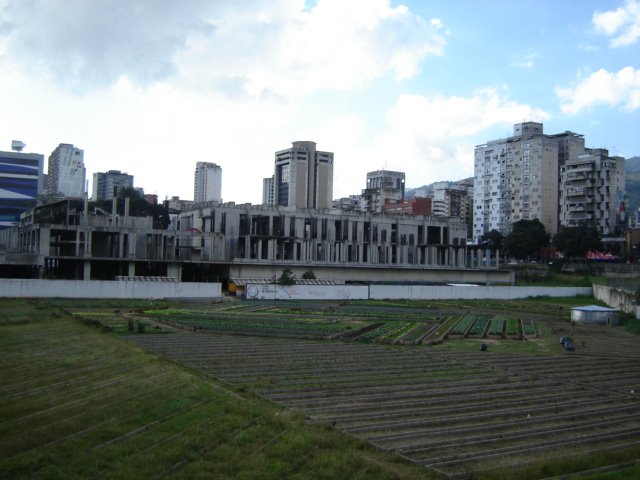
As Federico told us a few months ago on his blog
Islands and Territory, one of the measures to combat the crisis is to grow our own food garden básicos.A part of the current economic situation makes us reflect on aspects such, there are other interesting data on the other hand concern should be evaluated in.
For the year 2050, close 80% of the world's population will live in cities. Applying the most conservative estimates of population growth, world population will increase by 3 billion people for these dates. Continuing with current agricultural practices, it takes nearly 1000 million hectares of new land to produce food for this population. According to the FAO and NASA close 80% of productive land are currently in use. That is why we must seek new soils for primary use to cope with the high demand we expected.
Currently there are trends trying to introduce agricultural uses in urban areas or failing in their surroundings. It is what is called peri-urban agriculture or urban. Urban agriculture is not dependent transport of products and is relatively immune to fuel price volatility, impacting heavily on energy efficiency. The product quality tends to improve compared to those of industrial production, preservatives reducing by decreasing displacement. In turn generates employment greatly strengthen local economies.
In cities like Havana in Cuba has resurfaced this agriculture after the destruction of the third part of the island by successive plantings occurring hurricanes. But before the collapse of the Soviet Union had military plans in this regard so that Cuba could be self-sufficient in case of war. Now take advantage as much land available for productive use. They are used to grow each vacant lot, the roofs of buildings and even parking spaces.

Huerta in Havana. City Farmer
This concept of using decks and basements as arable areas has been taken to another level in countries "ultra developed" as Japan. The roofs of large buildings in Tokyo have become authentic plantations also generate employment, help mitigate heating the island. Methods "high-tech" as applied to agriculture hydroponics help get some soil productivity without adequate. Notwithstanding the need for artificial fertilizers hydroponics so sustainability is compromised.
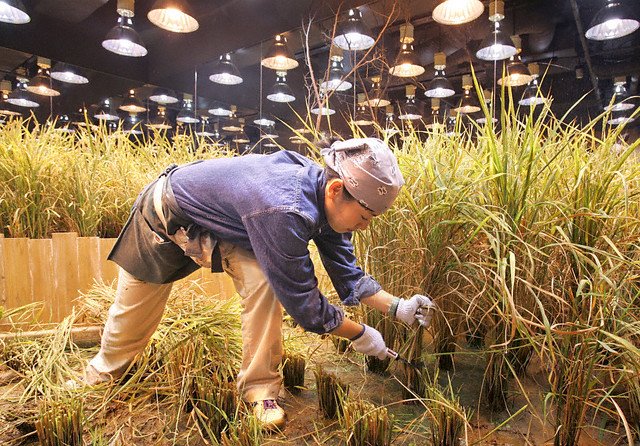
Rice plantation in the basement of a building in Tokyo. Flickr
The application of high technology to agricultural techniques reaches its peak with the appearance of the "vertical crops" (skyfarming). As societies live in vertical cities, raises the idea of creating buildings of a certain height for agricultural production, using the most innovative techniques.
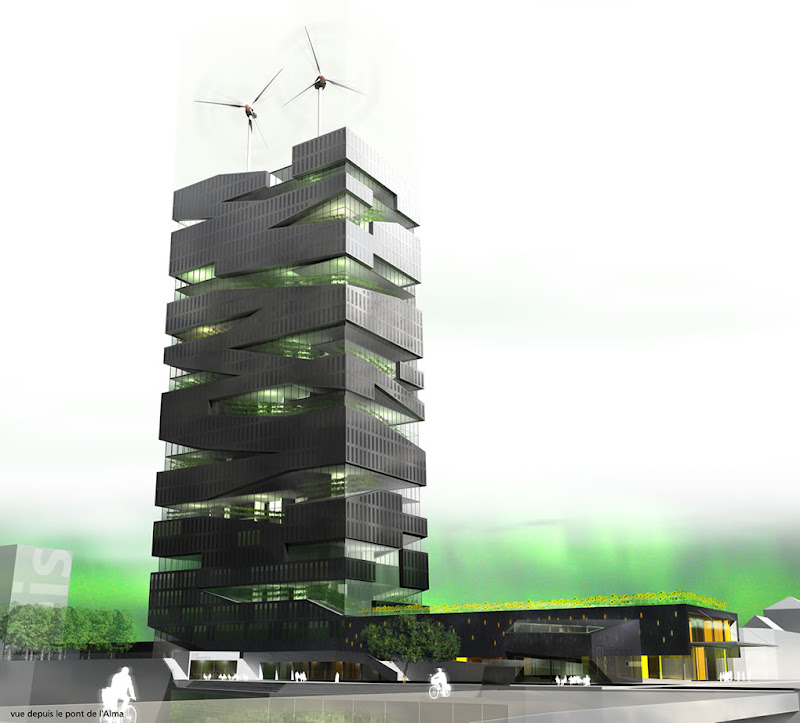
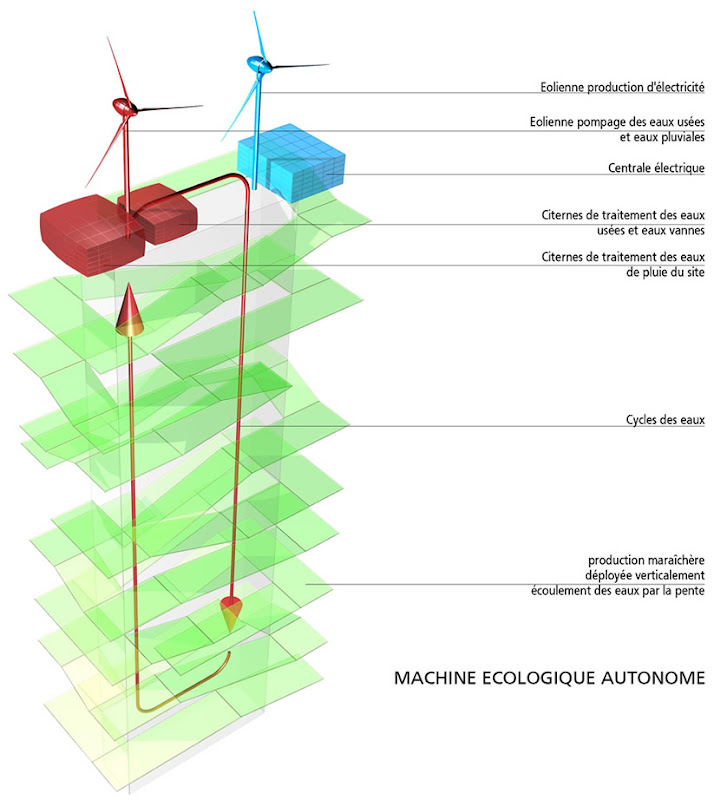
Proposal for SOA Architects
In many cities the existing spaces have been converted into small gardens trying to raise awareness of its importance. Even in the White House with his new tenant Barack Obama, it was decided to plant a garden, the first since Eleanor Roosevelt cultivated by the Second World War. This seems to want to give example to the public.
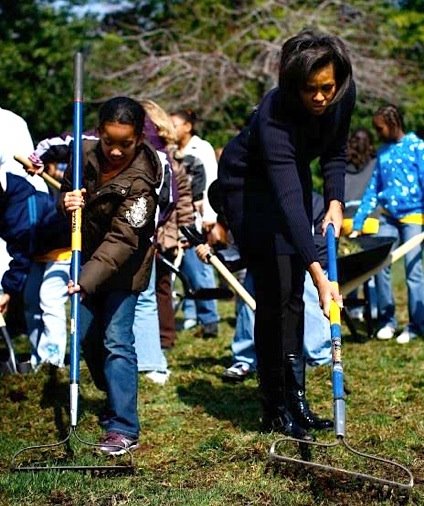 Michelle Obama in her new garden
Michelle Obama in her new gardenWe have seen how agriculture is introduced in cities, yet another issue that would require mention is how to adapt urban growth to rural areas. For example the search for new building types that interact with agricultural environments. Certainly a very interesting and close to our profession in an island territory like ours. I hope someone is encouraged to write about it ...

Valle de Guerra, Tenerife







Magnificent post, Ralf.
I think as the thing comes shortly we will all growing vegetables in parks and yards in yards from home.
The feeling you have one face this situation relentless deterioration around us is collective paralysis. It should get you started on what to do if things could get even worse. Every day that passes signals are greater in that direction.
Given the inaction of many politicians who only make declarations and before administrative inertia of those running the common good, have to start thinking about collective self-organization to try to pass this bitter pill in the most benign possible.
Because the subject does not look good.
Thanks Federico,
I think I'm taking a liking to this Blog, especially when the issues raised seem to interest people.
Seeing as this thing is not unreasonable to think that we can reach a state of collapse. In an island territory such as ours with foreign dependence I think it encourage basic primary sector to guarantee us at least commodity supply. If not ill go…
I already planted four terrraza lettuce in my house. For something you have to start!. Now if only grow.
The problem is not land but water, good topic for next post.